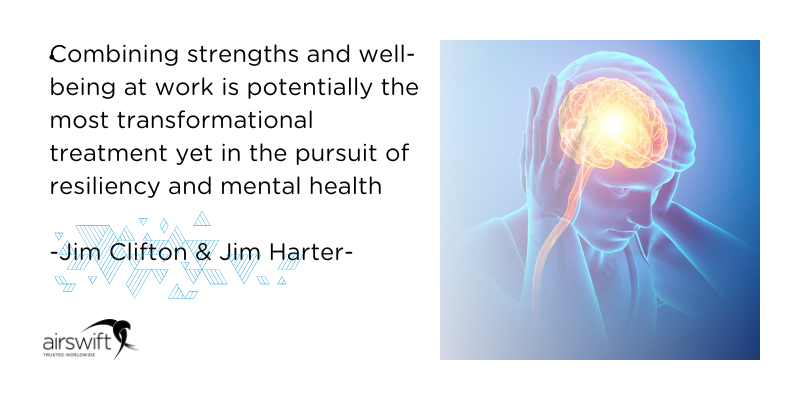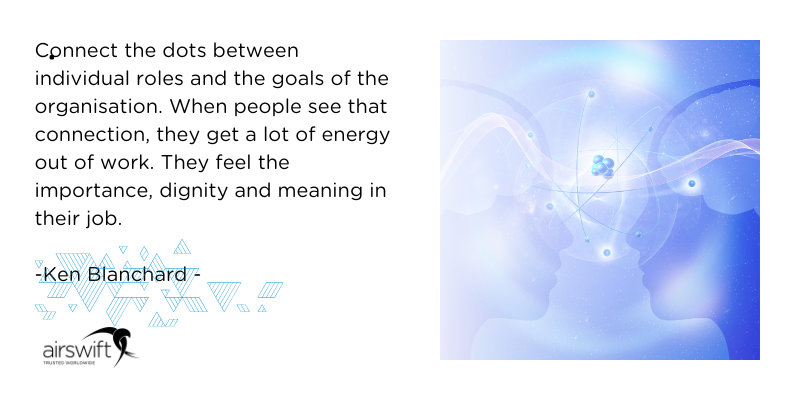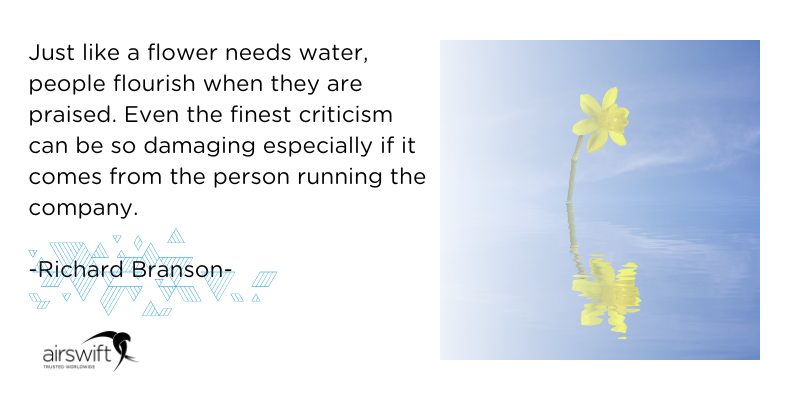
By
Diyaa Mani
December 11, 2024
Updated
December 11, 2024
Ever notice how a motivated team can feel unstoppable? When employees are genuinely engaged, productivity soars, collaboration flows, and job satisfaction rises. Motivation doesn’t just boost individual performance; it’s the foundation of a thriving workplace.
Conversely, lacking motivation can drain energy, lower output, and lead to burnout, turnover, and a stagnant work culture. To build an environment where people want to give their best, it’s crucial to understand what truly drives motivation at work—beyond just paychecks.
Here are some strategies for enhancing motivation and transforming your workplace into a space where employees and the organisation thrive:
Cultivate a positive mindset
Set personal goals within your role
Setting achievable, meaningful goals that align with your role and career aspirations is essential for maintaining motivation and direction in your daily work. Start by identifying one or two specific goals that directly support your current responsibilities.
Ensure these goals are measurable and linked to clear outcomes. For example, if you want to improve your project management skills, commit to leading a project from start to finish this quarter. Break these goals into smaller, actionable steps with deadlines, such as developing a project timeline or scheduling regular team check-ins.
Review your progress regularly to stay accountable and make adjustments as needed. Seek feedback from colleagues or mentors to gain insights and refine your approach. Focusing on specific, measurable goals and consistently linking your daily tasks to these objectives’ll build momentum, enhance engagement, and achieve tangible results in your personal development and contributions to the organisation.
Practice gratitude
Simple acts such as maintaining a gratitude journal or vocalising wins with peers can help foster positivity and resilience within the work environment. When done consistently, acknowledging what you are grateful for can enhance your day, help you improve your perspective, and deepen your relationship with coworkers.
Reframe challenges as learning opportunities
Adopting a growth mindset allows you to view setbacks as valuable learning experiences rather than failures. To cultivate this mindset, start by actively seeking out challenges that push you outside your comfort zone; for example, volunteer for projects that require skills you’re not yet proficient in, which will help you learn and build resilience. Additionally, set aside time each week for self-reflection, where you can assess what you learned from any setbacks and how to apply those lessons moving forward.
Focus on personal progress, not just outcomes
Recognising small achievements and incremental growth fosters a sense of accomplishment that drives long-term motivation. By focusing on your own progress rather than only the end results, you can nurture a more sustainable approach to personal development and celebrate continuous improvement.
Optimise your work environment

Create a workspace that boosts focus and comfort
Choosing ergonomic furniture, such as an adjustable chair and desk, can improve physical comfort and reduce fatigue, allowing for longer periods of focused work. Adding personal touches to your workspace and minimising distractions like clutter and noise further promotes a calming environment where concentration can thrive.
Incorporate regular breaks
Incorporating techniques like the Pomodoro Technique—working in focused intervals with short breaks—can prevent mental fatigue and help you maintain productivity. Simple actions like standing up, stretching, or taking a brief walk give the brain a rest, helping you return to work refreshed and ready to focus.
Limit digital overload
Setting boundaries around screen time, such as designating periods for email or silencing notifications, reduces constant interruptions and helps maintain focus. Limiting time on social media during work hours prevents distractions, allowing you to stay engaged with tasks and feel less overwhelmed.
Strengthen connections with colleagues
Build strong relationships within your team
A supportive work environment is cultivated when teams engage in regular bonding, open communication, and set check-ins. This helps team members feel seen and valued, leading to stronger connections. In turn, these strong bonds translate to better collaboration and higher morale, creating an atmosphere of trust and belonging where everyone feels at home.
Engage in cross-team collaborations
Working with different departments offers fresh perspectives and encourages a broader understanding of the organisation’s goals and challenges. Cross-team collaborations can inspire new ideas and create a sense of unity, reminding everyone of the shared purpose within the organisation.
Seek mentorship and supportive relationships
Having a mentor provides guidance and inspiration, helping you navigate challenges and find opportunities for personal growth. Supportive relationships can offer encouragement, feedback, and a sounding board, making staying motivated and progressing in your career easier.
Beyond the job description: Exploring general interests in the workplace

Identify personal interests and skills
Consider what activities or topics naturally energise you, whether directly related to your job or from personal passions. These can reveal areas where you feel most engaged. Reflecting on these interests helps you identify ways to integrate them into your work, enhancing satisfaction and motivation.
Propose projects or initiatives that align with interests
Approach managers to discuss how your interests align with current or new projects, highlighting how they can add value to your role and benefit the team. Connecting your passions with job responsibilities can create meaningful work experiences that boost engagement and productivity.
Take advantage of learning and development programs
Explore any available learning and development programs, even if they fall outside your core job functions, as they offer opportunities to expand your skills and knowledge. Engaging in these programs helps keep you motivated and can open new career possibilities within the organisation.
Participate in volunteering or CSR activities
Joining company-supported volunteering or Corporate Social Responsibility (CSR) activities is a meaningful way to give back to the community while connecting with colleagues. This involvement can strengthen your sense of purpose, improve morale, and foster a greater connection to your organisation.
Start or join employee resource groups (ERGs)
Employee Resource Groups provide spaces where employees with shared interests or backgrounds can come together for support, advocacy, and development. Being involved in or starting an ERG promotes a sense of belonging and allows you to contribute to an inclusive workplace culture.
Invest in continuous personal development
Pursue skill development and training
Upskilling through courses and training can refresh your motivation, expand your expertise, and create new career opportunities. Actively investing in skill development keeps you adaptable and excited about your potential.
Seek feedback and act on it
Constructive feedback is valuable for identifying areas to improve and fuelling personal growth. Embracing feedback helps you develop continuously and stay motivated to achieve your best.
Set milestones for career development
Setting clear career milestones keeps you focused on long-term growth and provides a roadmap to track your progress. These goals encourage persistence and provide a sense of achievement as you reach each stage.
Read industry-related content regularly
Keeping up with industry trends and developments helps you stay informed and engaged with your field. Regularly reading relevant content can inspire new ideas and keep your knowledge current.
Embrace autonomy and creativity
Encourage flexibility and remote work
Offering flexibility with work hours and locations enables employees to tailor their schedules to their most productive times, improving work-life balance and job satisfaction. This autonomy in managing where and when work is done can lead to greater motivation and a stronger sense of personal responsibility toward tasks.
Encourage autonomy in projects
Allowing employees freedom in how they tackle tasks fosters a sense of trust, ownership, and satisfaction. Autonomy can boost motivation and lead to more innovative, personalised results.
Take initiative in solving problems
Proactively proposing solutions increases ownership over tasks and builds confidence. Taking the initiative helps employees feel empowered and engaged in making a difference.
Experiment with creative approaches
Encouraging creative thinking in daily work can make tasks more enjoyable and reveal new ways to solve problems. Exploring fresh approaches keeps work dynamic and energising.
Prioritise well-being and balance
Embrace a healthy work-life balance
Maintaining a sustainable work routine helps prevent burnout and supports overall well-being. Setting boundaries between work and personal time is essential for long-term productivity and happiness.
Integrate physical activity into the day
Incorporating physical activity, even brief exercises or stretching, can improve mood, reduce stress, and increase energy. Physical movement throughout the day also boosts focus and motivation.
Practice mindfulness and stress management techniques
Mindfulness practices like meditation, deep breathing, or journaling help reduce stress and enhance mental clarity. These techniques can provide a calming reset, allowing you to tackle tasks more effectively.
Set boundaries and practice saying “no”
Setting clear boundaries and saying “no” when needed helps prevent overcommitment and keeps energy levels steady. Learning to prioritise tasks is key to staying focused and avoiding overwhelm.
Reward and recognise achievements

Seek or create incentive programs
Incentive programs that recognise individual and team efforts can enhance motivation and reward hard work. Suggesting or participating in such programs builds a culture of appreciation and encouragement.
Share progress and achievements with the team
Sharing individual and collective achievements promotes a supportive culture and strengthens team bonds. Celebrating milestones together fosters a sense of shared success and collaboration.
Engage in open communication with leadership
Advocate for transparency in decision-making
Transparent communication from leadership builds trust and ensures employees understand the rationale behind decisions. Being open about goals, challenges, and processes helps employees feel included and aligned with the company’s direction.
Participate in strategy and vision discussions
Discussing the company’s strategy and vision allows employees to contribute ideas and feel more connected to the organisation’s goals. Participation fosters a sense of ownership and investment in the company’s success.
Build a motivated team with Airswift
Employees can stay engaged and productive by cultivating a positive mindset, strengthening connections with colleagues, and investing in continuous development. This can lead to long-term success for both individuals and organisations.
At Airswift, we provide tailored workforce solutions that help companies build motivated teams, streamline HR functions, and find the right opportunities and resources for success.
